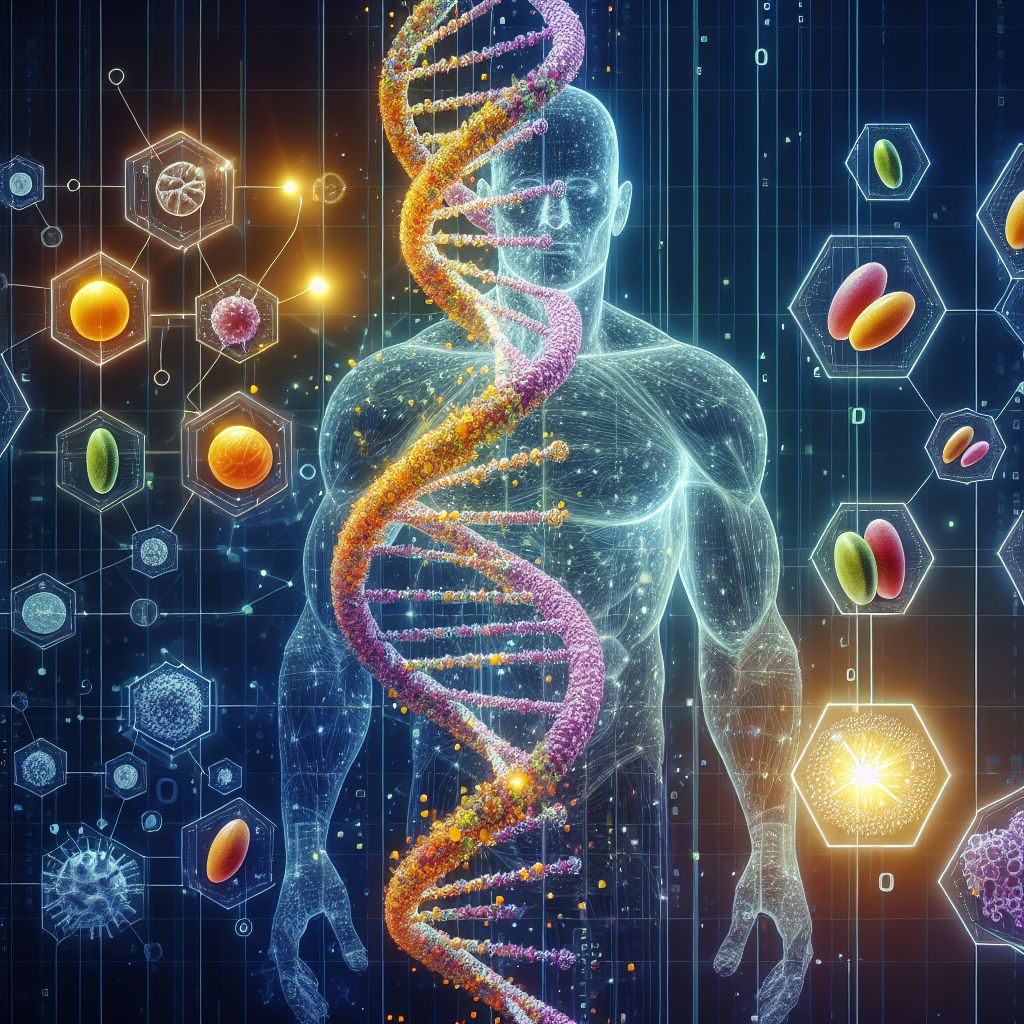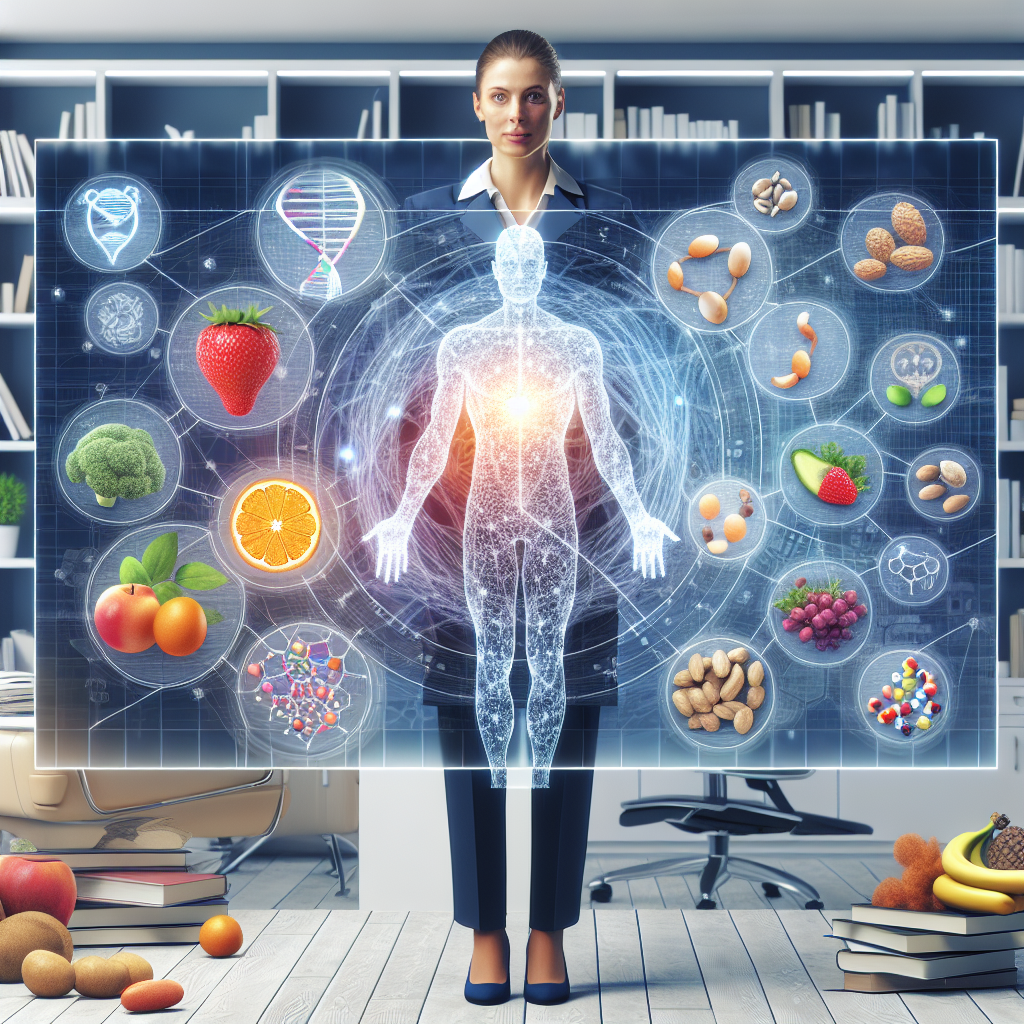Human Design and Vitamins: Personalized Health

Discover your unique Human Design and learn how personalized vitamins can enhance your health. Start your journey towards a healthier you today. Click here to get started.
Exploring the Connection Between Human Design and Vitamin Intake
Human Design, a system that combines astrology, the I Ching, Kabbalah, Hindu-Brahmanic system, and quantum physics, is increasingly being used to understand individuality and personal health. It provides a blueprint of our unique genetic makeup, offering insights into our strengths, weaknesses, and potential health issues. Recently, there has been a growing interest in the connection between Human Design and vitamin intake, with the belief that understanding one’s design can guide personalized health and wellness strategies.
To begin with, Human Design categorizes individuals into four types: Manifestors, Generators, Projectors, and Reflectors. Each type has a unique way of interacting with the world and specific health needs. For instance, Generators, who make up about 70% of the population, are considered the workhorses of society. They have a defined Sacral Center, which is the body’s powerhouse, and when correctly used, it provides them with a seemingly endless source of energy. However, when they don’t use their energy correctly, they can experience burnout. In such cases, vitamins like B-complex, which are known for their energy-boosting properties, can be beneficial.
On the other hand, Projectors, who make up about 20% of the population, do not have a defined Sacral Center and thus lack the consistent energy supply that Generators have. They are designed to guide and manage others, and their health depends on recognizing and honoring their energy limitations. For Projectors, vitamins that support adrenal health, such as Vitamin C and B5, can be particularly beneficial to help them manage stress and prevent fatigue.
Manifestors, making up around 9% of the population, are initiators and are designed to start processes and make things happen. They have a powerful impact on their environment but can often feel overwhelmed by the reactions they provoke. For Manifestors, vitamins that support the nervous system, such as B12 and magnesium, can be beneficial to help them manage stress and maintain emotional balance.
Lastly, Reflectors, who make up just 1% of the population, are unique in that they have no defined centers. They are highly sensitive to their environment and can mirror the health of their community. For Reflectors, a balanced multivitamin can be beneficial to support overall health and resilience.
However, it’s important to note that while Human Design can provide valuable insights into our health needs, it should not replace professional medical advice. It’s always recommended to consult with a healthcare provider before starting any new vitamin regimen. Moreover, our vitamin needs can also be influenced by other factors such as age, lifestyle, diet, and existing health conditions.
In conclusion, the connection between Human Design and vitamin intake offers a fascinating new perspective on personalized health. By understanding our unique design, we can make more informed decisions about our health and wellness, including our vitamin intake. As we continue to explore this connection, we may discover even more ways to optimize our health based on our unique genetic blueprint.
Personalized Health: The Role of Vitamins in Your Human Design

Human Design, a system that combines astrology, the I Ching, Kabbalah, Hindu-Brahmanic system, and quantum physics, is increasingly being recognized for its potential in personalized health. This system provides a unique blueprint of our genetic makeup, which can be used to understand our health on a deeper level. One area where Human Design can be particularly insightful is in the realm of vitamins, those essential nutrients that play a critical role in maintaining our health and wellbeing.
Vitamins are vital for our bodies to function properly. They aid in the production of energy, the strengthening of the immune system, the repair and growth of tissues, and the overall maintenance of our bodies. However, not everyone requires the same amount of vitamins. This is where Human Design comes into play. By understanding our unique Human Design, we can gain insights into our individual vitamin needs, thereby optimizing our health.
Human Design categorizes individuals into four types: Manifestors, Generators, Projectors, and Reflectors. Each type has a unique way of interacting with the world, which can influence their nutritional needs. For instance, Generators, who are known for their sustained energy, may require higher levels of B-vitamins to support their energy production. On the other hand, Reflectors, who are sensitive to their environment, may benefit from antioxidants like vitamin C and E to protect their cells from damage.
Moreover, Human Design also provides insights into our digestive system, which plays a crucial role in the absorption of vitamins. For example, some individuals may have a defined spleen, indicating a strong immune system and a potential need for less vitamin C. Others may have an undefined spleen, suggesting a weaker immune system and a potential need for more vitamin C.
In addition to understanding our vitamin needs, Human Design can also help us understand how we best absorb these nutrients. Some people may absorb vitamins best through food, while others may absorb them better through supplements. This understanding can help us make more informed decisions about our diet and supplement regimen.
However, it’s important to note that while Human Design can provide valuable insights, it should not replace professional medical advice. It’s always recommended to consult with a healthcare provider before making any changes to your diet or supplement regimen.
In conclusion, Human Design offers a unique and personalized approach to health. By understanding our unique design, we can gain insights into our vitamin needs and how we best absorb these nutrients. This can help us optimize our health and wellbeing. As we continue to explore the potential of Human Design in personalized health, we may find even more ways to tailor our health practices to our unique genetic makeup.
In the realm of personalized health, the role of vitamins in our Human Design is just the tip of the iceberg. As we delve deeper into this fascinating system, we may discover new ways to optimize our health and wellbeing. After all, health is not a one-size-fits-all concept. By embracing our uniqueness, we can pave the way for a healthier, happier life.
Understanding Your Human Design: How Vitamins Contribute to Personalized Health
Human Design is a revolutionary system that combines elements of astrology, the I Ching, Kabbalah, Hindu-Brahmanic system, and quantum physics to provide a unique and comprehensive blueprint of an individual’s genetic makeup. This blueprint, or Human Design chart, offers profound insights into an individual’s personality, strengths, weaknesses, and life purpose. It is a tool that can be used to make decisions that are in alignment with who we truly are, leading to a more authentic and fulfilling life.
One of the most fascinating aspects of Human Design is its potential application in the field of personalized health. This is particularly relevant when it comes to the use of vitamins, which are essential nutrients that our bodies need in small amounts to function properly.
Vitamins play a crucial role in maintaining our health. They are involved in numerous biological processes, including the production of energy, the synthesis of DNA, the functioning of the immune system, and the maintenance of healthy skin, eyes, and brain. However, not all vitamins are created equal. Some are more beneficial for certain individuals than others, depending on their unique genetic makeup and lifestyle.
This is where Human Design comes in. By understanding our unique Human Design, we can gain insights into which vitamins are most beneficial for us. For instance, individuals with a defined Sacral Center, which is associated with life force energy and vitality, may benefit more from vitamins that support energy production, such as B-vitamins. On the other hand, individuals with a defined Throat Center, which is associated with communication and expression, may benefit more from vitamins that support brain function and mental clarity, such as omega-3 fatty acids and vitamin E.
Moreover, Human Design can also provide insights into how we can best absorb and utilize these vitamins. For instance, individuals with a defined Solar Plexus Center, which is associated with emotions and intuition, may absorb vitamins better when they are in a relaxed and positive emotional state. On the other hand, individuals with a defined Root Center, which is associated with stress and pressure, may absorb vitamins better when they are in a calm and grounded state.
In addition to providing insights into which vitamins are most beneficial for us and how we can best absorb them, Human Design can also help us understand our unique dietary needs and eating habits. For instance, individuals with a defined Spleen Center, which is associated with health and well-being, may thrive on a diet that is rich in fresh and raw foods, while individuals with a defined G Center, which is associated with identity and direction, may thrive on a diet that is consistent and routine.
In conclusion, Human Design offers a powerful tool for personalized health. By understanding our unique Human Design, we can make more informed decisions about which vitamins to take, how to best absorb them, and what dietary habits to adopt. This can lead to improved health, vitality, and well-being, and ultimately, a more authentic and fulfilling life.